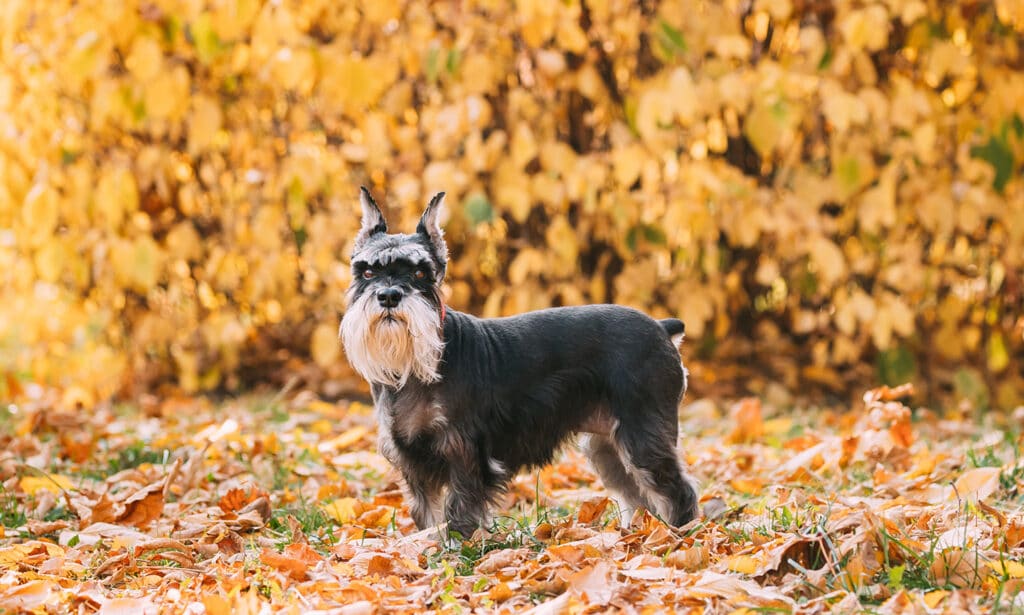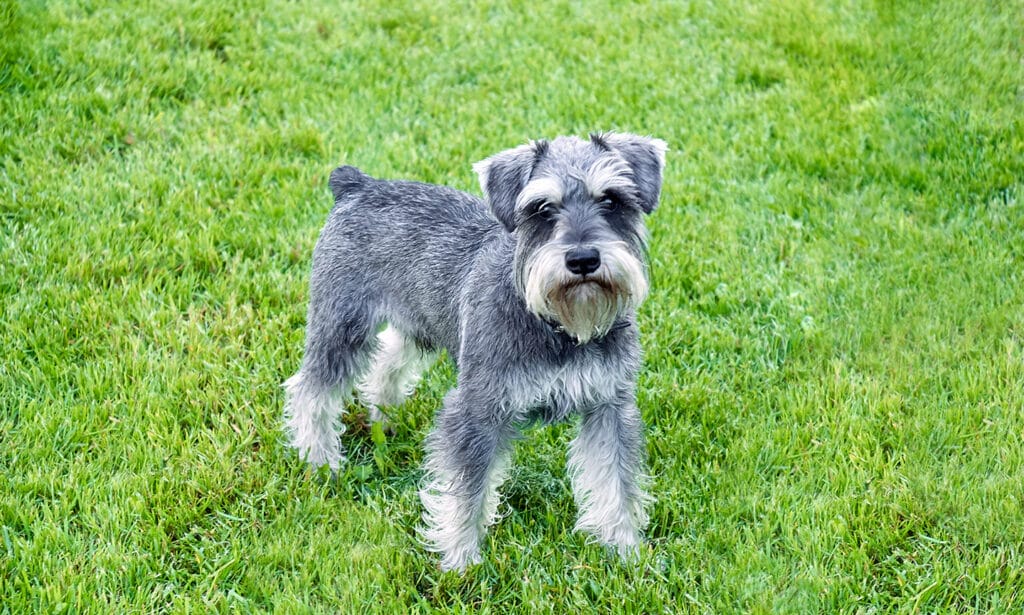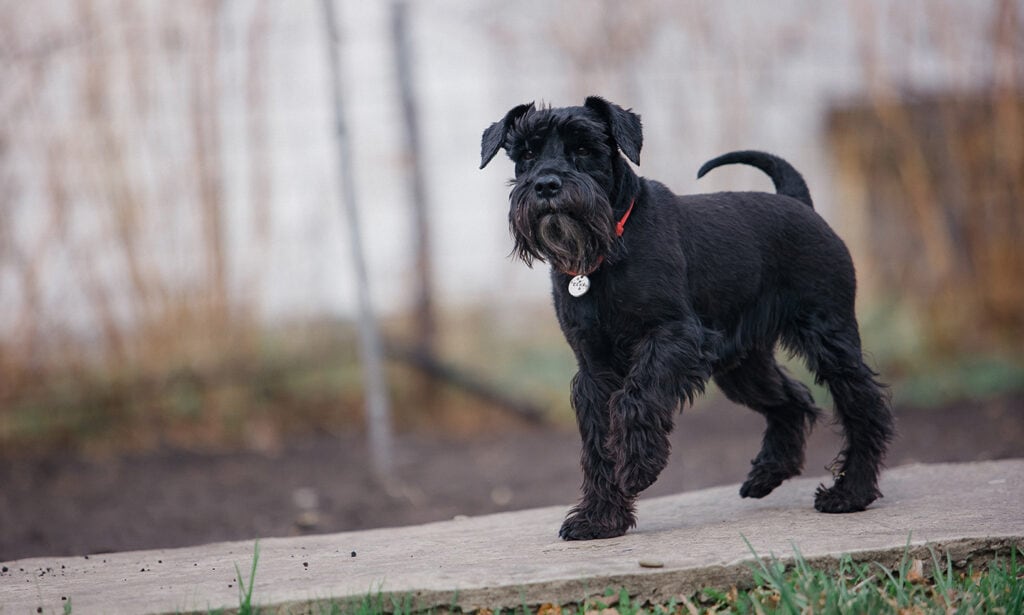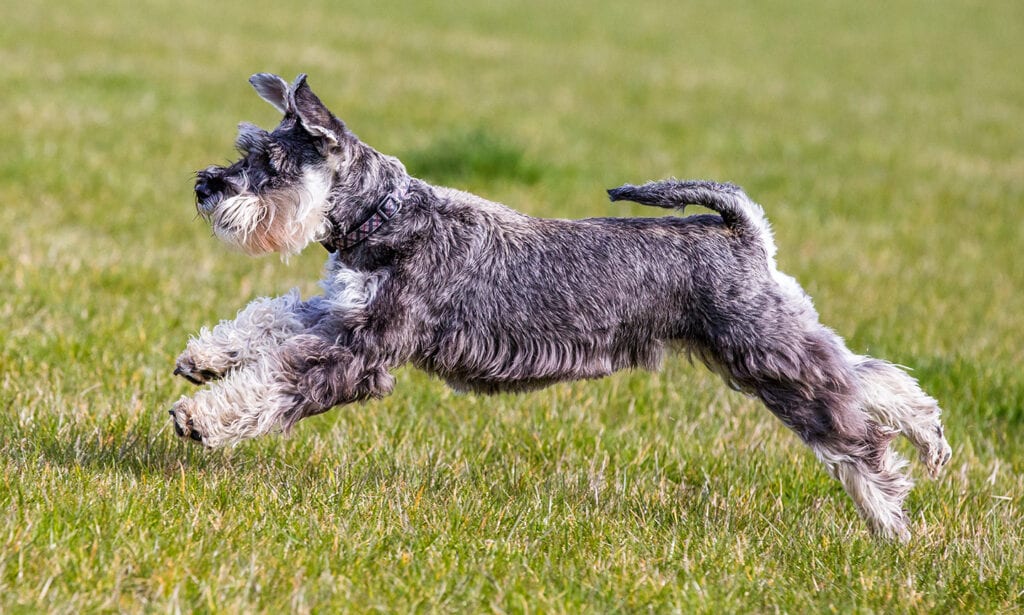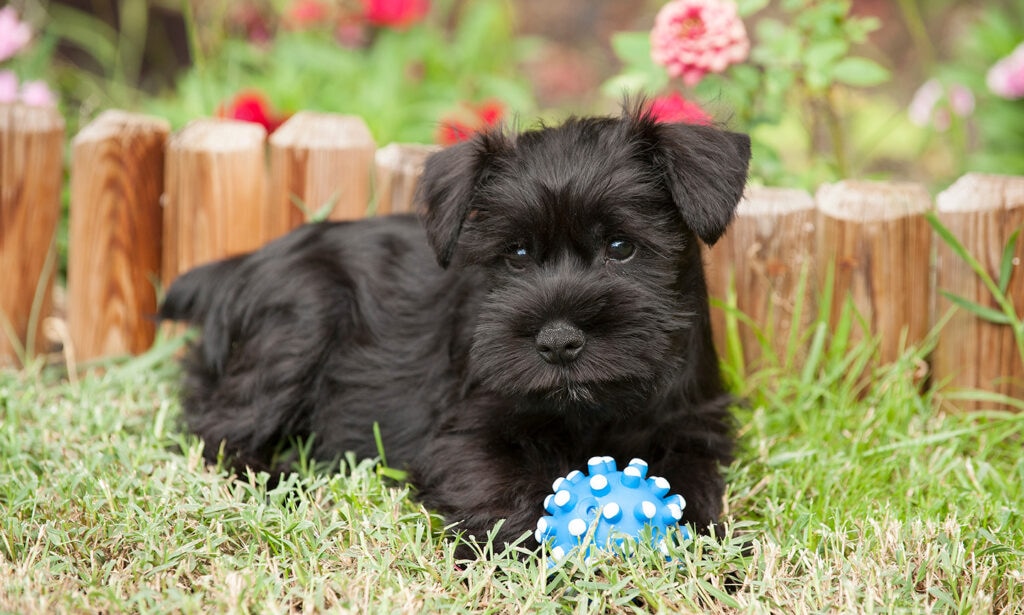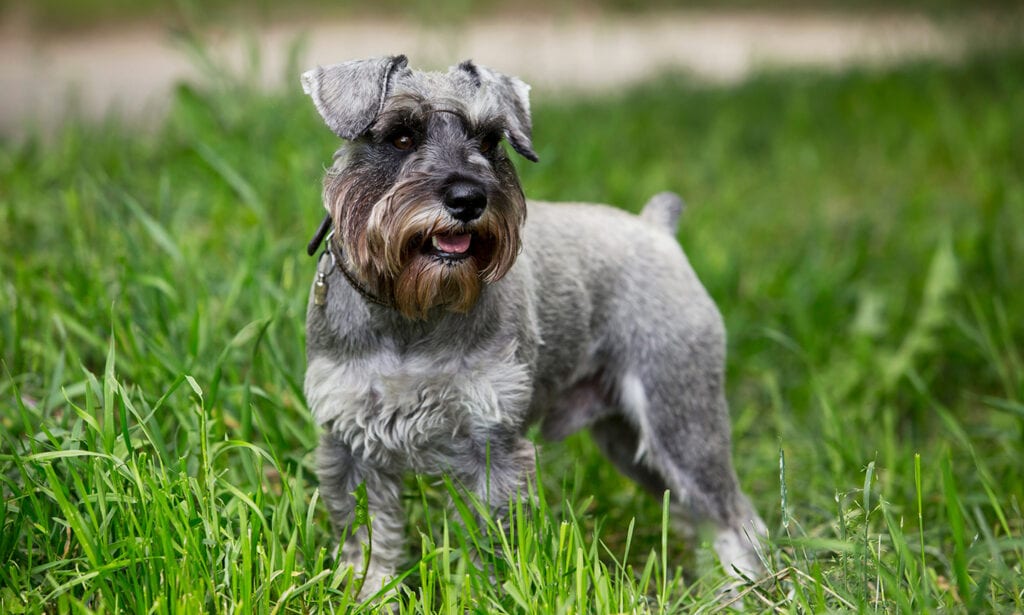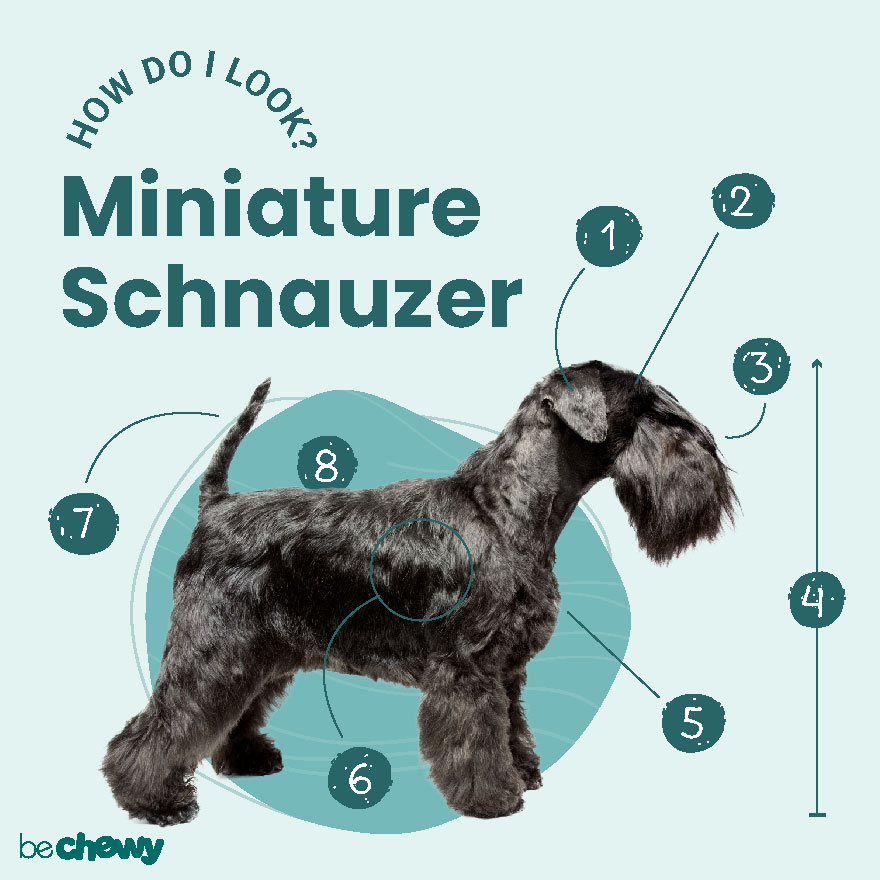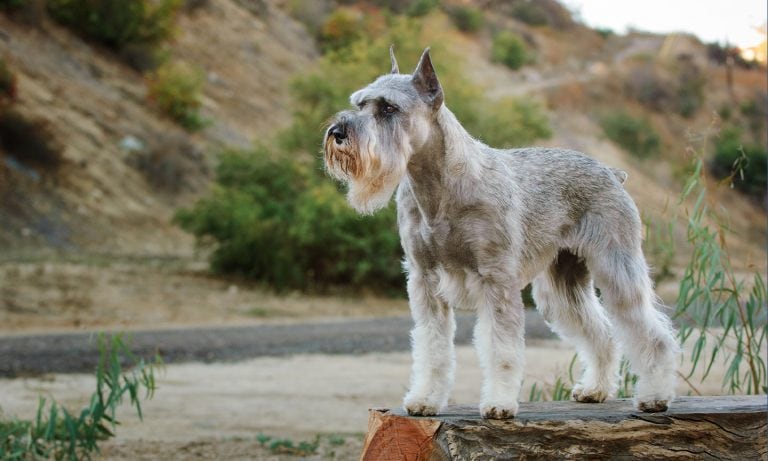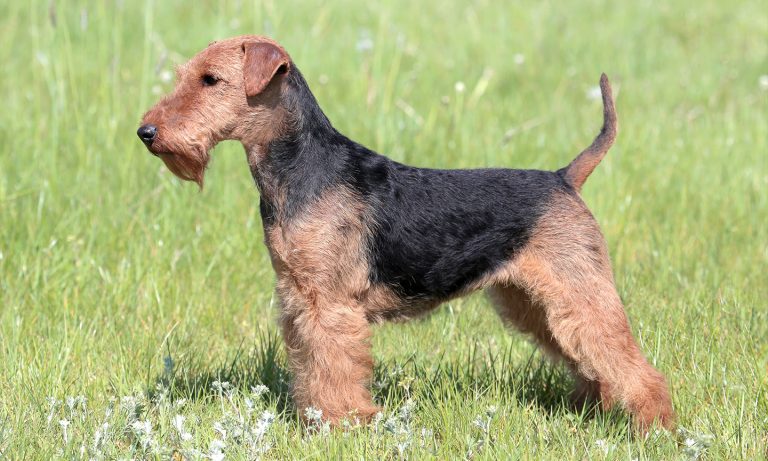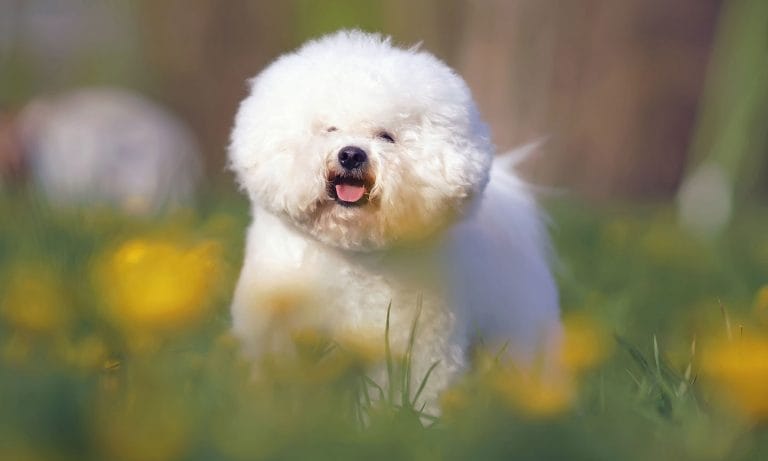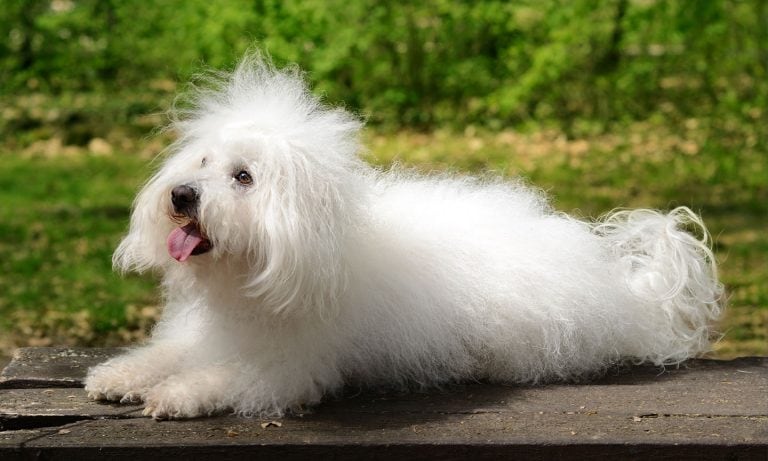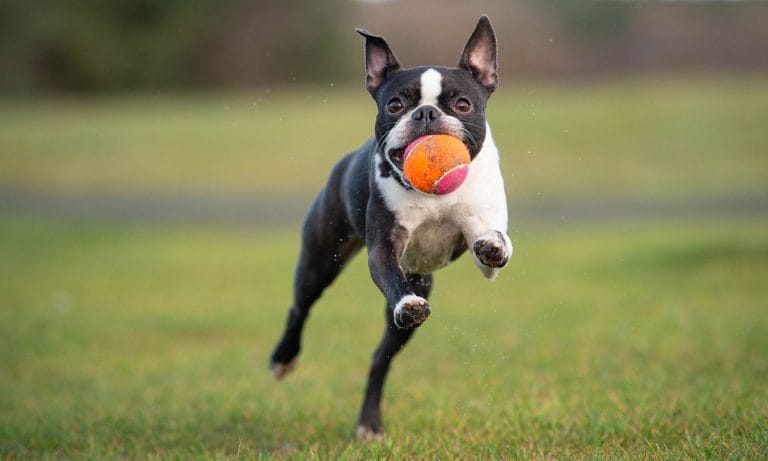Are you looking for a pup who matches your on-the-go, fun-centric life? Meet the Miniature Schnauzer. This dog is ready to jump right into your busy life, making friends at social events, trotting through town beside you and showing off their tricks at every opportunity. Plus, their compact size makes them great dogs for urban apartment dwellers, as long as they still get their exercise needs met. Invite this life-of-the-party dog into your inner circle and watch them amplify the excitement in your everyday life.
Breed Snapshot
Temperament:
FeistyLovableReady For AnythingCoat Color:
Salt And PepperBlack And SilverSolid Black
Best For
The Miniature Schnauzer is a small-but-sturdy breed known for their distinctive beard and bushy eyebrows. Originating from Germany, these friendly and spirited dogs make excellent family pets, displaying intelligence, loyalty and a love for companionship and play.
Miniature Schnauzer Temperament
The Miniature Schnauzer’s size is small, but in many ways, this gregarious breed acts like a big dog in a small body. Feisty and spunky top the list of their qualities. But despite their larger-than-life personality, this breed is also sweet and affectionate, happy to snuggle with you on the couch. Mini Schnauzers are very attached to their people and want to be wherever you are at all times.
Miniature Schnauzer dogs are generally good with children. They’re loving little dogs who are always ready to play. The children in their lives must understand how to play gently with small dogs, though—kids, especially younger ones, sometimes play too rough with smaller dog breeds. Miniature Schnauzers’ friendly temperaments often lead them to pair well with other pets, although their big personality can sometimes mean they confront larger dogs, and their terrier prey drive may stand in the way of friendships with small animals. (They do like to chase.) Start socializing your dog early, so they’ll be well-behaved around smaller children and other pets.
Miniature Schnauzers bond so strongly with their families that they can be aloof toward new people coming into the home. But as soon as your pup sees you interacting with a stranger, they’ll likely be friendly toward the new person, too. And while Miniature Schnauzers are very noisy, they’re not known to bite. Again, proper socialization and training for this eager-to-please breed will go a long way.
How to Care for a Miniature Schnauzer
In general, the Miniature Schnauzer’s needs match their stature: relatively small. They’re highly trainable, and their exercise needs are pretty average. Grooming a Mini Schnauzer is a bigger task, but with the help of a professional groomer, you’ll be able to learn the ropes.
Miniature Schnauzer Health
Miniature Schnauzers have a lifespan of 12 to 15 years, and overall, the dog is a fairly healthy breed. The good news is that many of their common health conditions can be avoided if you feed your Schnauzer a proper diet and provide plenty of opportunity for exercise.
- Pancreatitis: Pancreatitis, or inflammation of the pancreas, is a serious condition which often requires hospitalization for treatment. While the cause is not completely understood, there is likely a genetic component and eating foods high in fat may be a component. Long-term management often includes a strict low-fat diet.
- Diabetes Mellitus: Miniature Schnauzers are prone to diabetes which can be caused by a pre-existing condition, like pancreatitis, obesity, Cushing’s disease or genetics. Diabetes in dogs is typically treated with insulin therapy and sometimes diet changes.
- Cataracts: Miniature Schnauzer are prone to developing cataracts both as an inherited condition and secondary to diabetes. Often they can be surgically removed.
- Bladder Stones: Bladder stones are often caused by diet or other conditions in the bladder, like a bladder infection. Symptoms include urinary accidents, straining to urinate and blood in the urine. If your Miniature Schnauzer has bladder stones, they may need surgery to remove them. Diet changes might be necessary post-surgery to prevent more stones from developing.
- Portosystemic Shunt: A portosystemic shunt, or liver shunt, is formed when blood vessels bypass the liver and is often caused by a birth defect. Symptoms include stunted growth, increased drinking and urinating, as well as circling or head pressing. Treatments often include diet change, medication, and in some cases surgery.
- Myotonia: Myotonia congenita is a genetic muscle disorder that causes a schnauzer’s muscles to stay contracted. A DNA test will show whether your dog or their parents are carriers of the myotonia gene. The condition can be managed with medications.
- Von Willebrand Disease: If a dog has this inherited disease, their blood can’t clot correctly. Typically dogs with this condition are asymptomatic in their daily lives but may need blood transfusions if they have an injury or need surgery.
- Mycobacterium Avium Complex (MAC): MAC is a very rare but lethal defect of the immune system that causes overwhelming infection in affected pups. A genetic screening test is available so be sure to ask your breeder.
Miniature Schnauzer History
As you might have guessed from the sound of the name “Schnauzer,” these dogs originated in Germany—specifically Germany in the 19th century, when the Standard Schnauzer was bred with the Poodle and the Affenpinscher to create a whole new type of dog. Miniature Schnauzers were originally used as farm dogs, working as ratters and guard dogs.
Breeders in the United States began breeding Miniature Schnauzers in the 1920s, and the American Kennel Club recognized the breed in 1926. There are three types of Schnauzers—Miniature, Standard and Giant—and each one is considered a distinct breed.
In recent years, the Miniature Schnauzer has become a popular breed; they currently rank No. 19 out of the 197 dog breeds recognized by the AKC. If you’re looking for one, you shouldn’t have any trouble finding a Miniature Schnauzer puppy to welcome into your home. Work with an AKC-registered breeder to locate the best dog for you. A purebred Miniature Schnauzer price is normally between $500 and $2,000. But for that, you’re likely getting a pup who’s been screened for health and temperament issues and may come with pedigree papers. You can also keep an eye out at your local animal shelter, check with a Miniature Schnauzer rescue to adopt a dog or or search Chewy’s database of adoptable dogs in your area.
FAQs
Are Miniature Schnauzers hypoallergenic?
Yes, Miniature Schnauzers are considered a hypoallergenic breed. They don’t shed much, and their wiry fur shouldn’t bother most people with allergies to dogs.
What are the differences between Miniature and Standard Schnauzers?
Miniature and Standard Schnauzers are two different breeds. (Unlike the Poodle, which has one standard for the different sizes.) Miniature Schnauzers are part of the AKC’s Terrier group and are small in size. Standard Schnauzers are larger and are part of the Working group (dogs with a job to do).
When do Miniature Schnauzers stop growing?
Miniature Schnauzers typically stop growing around 12 months of age. At that point, they are considered fully grown.
Do Miniature Schnauzers bark a lot?
Yes, Miniature Schnauzers bark a lot. They tend to be pretty noisy! They’re very alert, and they want to keep you informed of what’s happening around your home. With training, you can help your pup learn when it’s appropriate to bark.
Can Miniature Schnauzers swim?
Yes, Miniature Schnauzers can swim, but whether they enjoy it or not depends on the individual dog. As a breed, Mini Schnauzers aren’t naturally strong swimmers who don’t naturally love the water—but there are exceptions. If your Mini Schnauzer does enjoy a dip, make sure they’re supervised and wearing a life jacket at all times.
What are the most common Miniature Schnauzer mixes?
The most common Miniature Schnauzer mixes are:
- Miniature Schnauzer-Poodle mix (Schnoodle)
- Miniature Schnauzer-Jack Russell Terrier mix (Miniature Schnauzer Jack Russell)
- Miniature Schnauzer-Yorkshire Terrier mix (Snorkie)
- Miniature Schnauzer-Maltese mix (Mauzer)
- Miniature Schnauzer-German Shepherd mix (Miniature Schnauzer German Shepherd)
Note: These are not purebred dogs but mixed breeds.
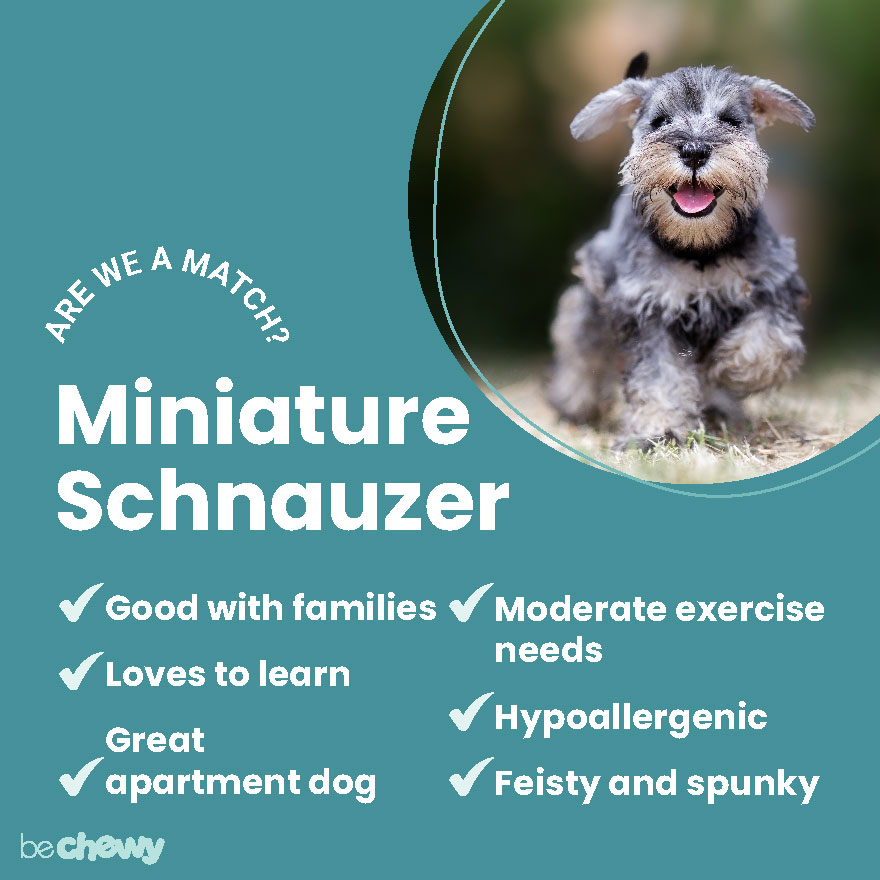
Top Takeaways
Outgoing, energetic and lovable, Miniature Schnauzers make a great fit for new pet parents looking for a dog to love. You’ll stay busy teaching your pup new tricks and grooming that wiry coat. And with a Miniature Schnauzer life expectancy of 12 to 15 years, there’s plenty of time for you and your dog to enjoy together.
Expert input provided by Erin Askeland, CPDT-KA, CBCC-KA, Animal Health & Behavior Consultant at Camp Bow Wow, and J. Todd Gross, DVM, of Goodlettsville Animal Hospital in Nashville, Tenn.

Search for Adoptable Miniature Schnauzers Near You
Top Miniature Schnauzer Names
These are the top Miniature Schnauzer names as chosen by Chewy's pet parents!
Female Names
- Luna
- Bella
- Pepper
- Lucy
- Daisy
- Lola
- Stella
- Millie
- Maggie
- Sophie
Male Names
- Max
- Milo
- Winston
- Cooper
- Oliver
- Charlie
- Bentley
- Rocky
- Toby
- Tucker
Share:
